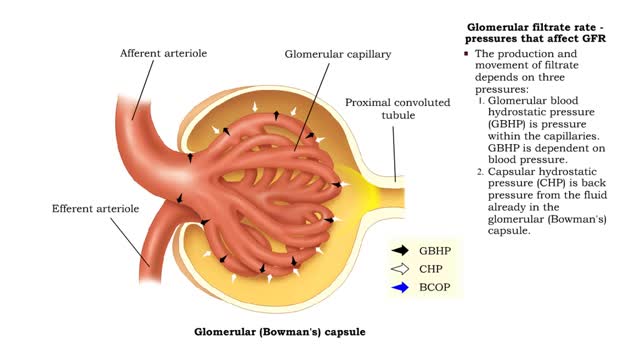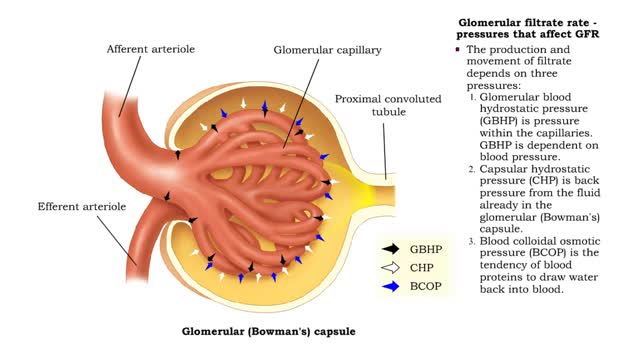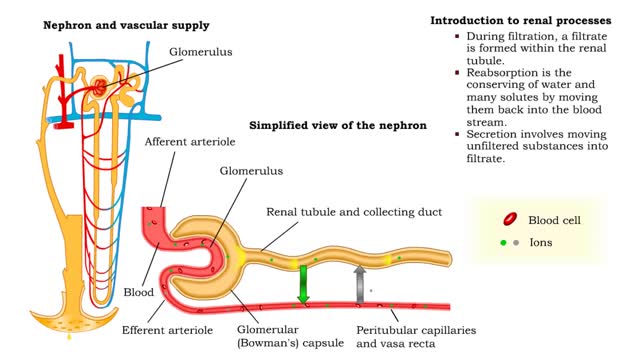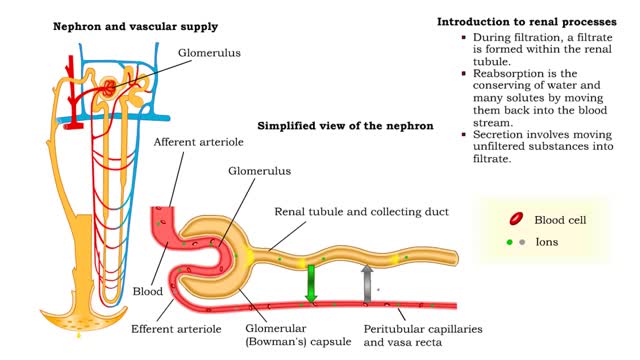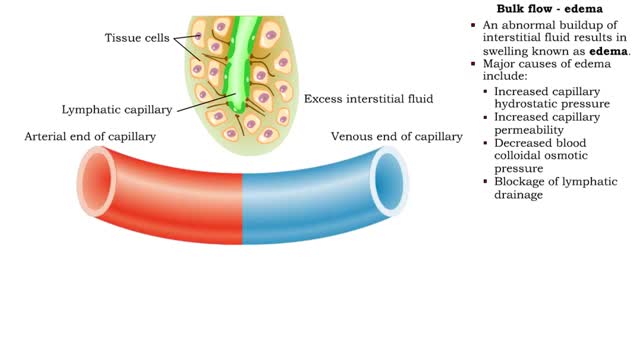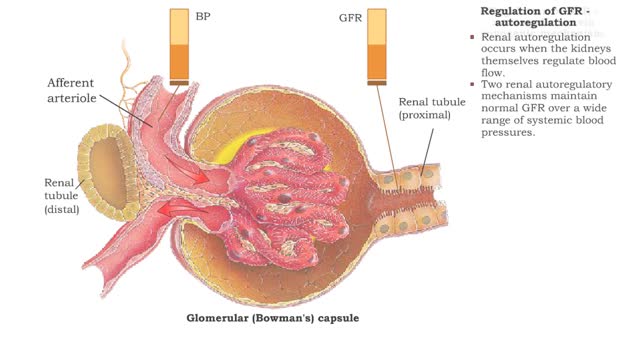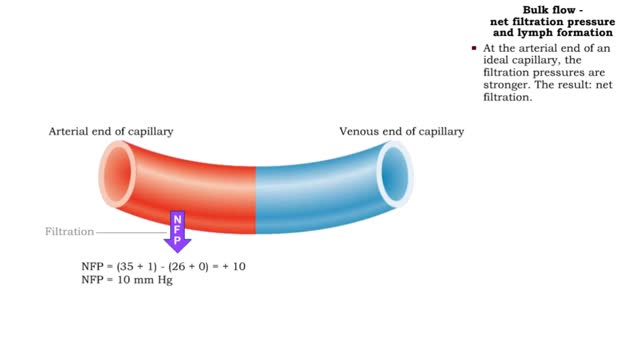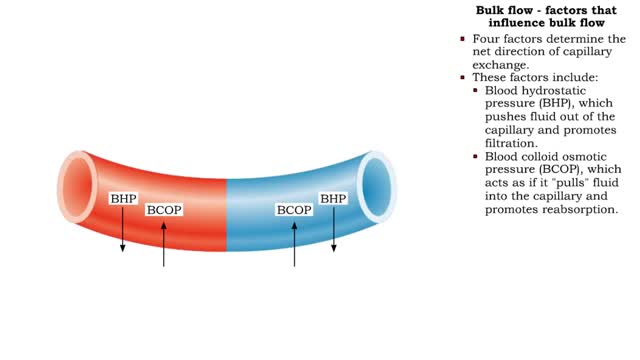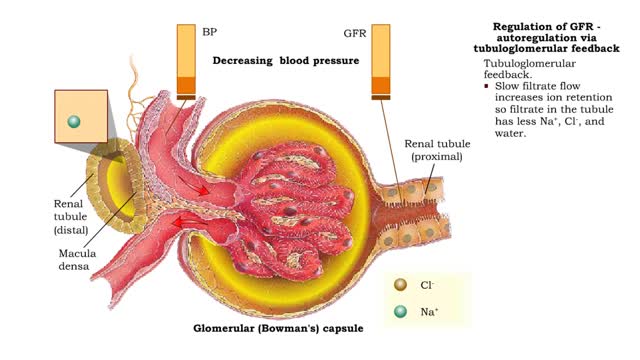Search Results
Results for: 'Glomerular filtration'
Glomerubular filtrate rate -pressures that affect GFR and net filtration pressure
By: HWC, Views: 12070
• The glomerular filtration rate is the amount of filtrate formed per minute within the renal corpuscle. • Once the filtrate is formed it moves down the tubule. • The production and movement of filtrate depends on three pressures: I. Glomerular blood hydrostatic pressure (GBHP) is pre...
Glomerular filtrate rate: pressures that affect GFR, NFP & GFR and blood composition
By: HWC, Views: 12200
• The glomerular filtration rate is the amount of filtrate formed per minute within the renal corpuscle. • Once the filtrate is formed it moves down the tubule. • The production and movement of filtrate depends on three pressures: I. Glomerular blood hydrostatic pressure (GBHP) is ...
Introduction to filtration - filtrate formation and composition
By: HWC, Views: 11854
• At the nephron, the three process responsible for the formation of urine include: • Glomerular filtration. • Tubular reabsorption. • Tubular secretion. • During filtration, a filtrate is formed within the renal tubule. • Reabsorption is the conserving of water and many s...
Carbohydrate Metabolism: Introduction to renal processes and filtrate formation and composition
By: HWC, Views: 11875
• At the nephron, the three process responsible for the formation of urine include: • Glomerular filtration. • Tubular reabsorption. • Tubular secretion. • During filtration, a filtrate is formed within the renal tubule. • Reabsorption is the conserving of water and many s...
Net filtration pressure and lymph formation, edema & blood velocity
By: HWC, Views: 11526
Bulk flow -net filtration pressure and lymph formation • The net filtration pressure (NFP) is the force promoting filtration minus the force promoting reabsorption. • At the arterial end of an ideal capillary, the filtration pressures are stronger. The result: net filtration. • At t...
Regulation of GFR: three methods, autoregulation & autoregulation via myogenic mechanism
By: HWC, Views: 12176
• GFR can be regulated by adjusting: • Blood flow in and out of the glomerular capillaries. • Surface area of glomerular capillaries. • There are three main ways to make these adjustments: • Renal autoregulation. • Nervous regulation. • Hormonal regulation. • Ren...
Bulk flow - Factors that influence bulk flow
By: HWC, Views: 11928
• Bulk flow helps regulate the relative volumes of blood and interstitial fluid. • Flow from blood to interstitium is called filtration. ■ Flow from interstitium to blood is called reabsorption. ■ Four factors determine the net direction of capillary exchange. ■ These factors in...
Bulk flow - factors that influence bulk flow
By: HWC, Views: 11264
• Bulk flow helps regulate the relative volumes of blood and interstitial fluid. • Flow from blood to interstitium is called filtration. • Flow from interstitium to blood is called reabsorption. • Four factors determine the net direction of capillary exchange. • These factors in...
Regulation of GFR: autoregulation via myogenic mechanism Myogenic mechanism
By: HWC, Views: 13267
• GFR can be regulated by adjusting: • Blood flow in and out of the glomerular capillaries. • Surface area of glomerular capillaries. • There are three main ways to make these adjustments: • Renal autoregulation. • Nervous regulation. • Renal autoregulation occurs when...
Advertisement



